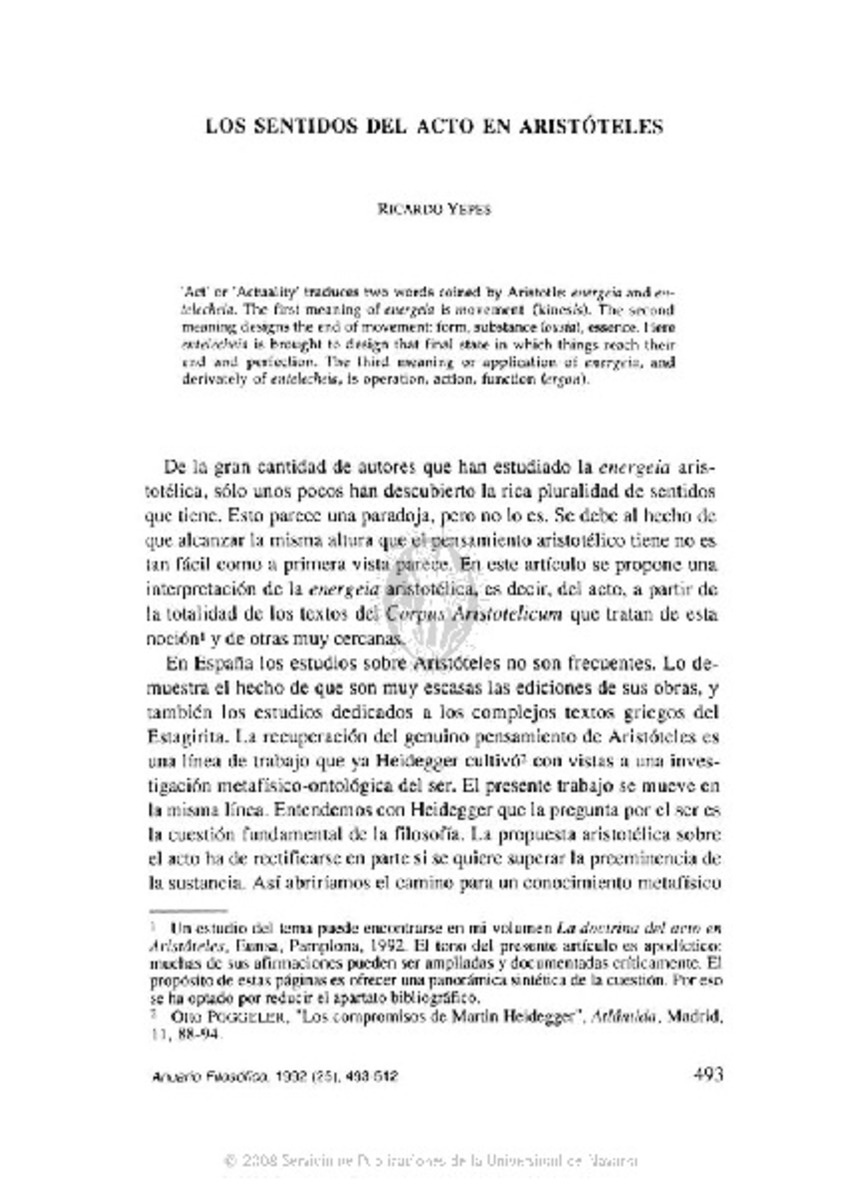Full metadata record
| DC Field | Value | Language |
|---|---|---|
| dc.creator | Yepes, R. (Ricardo) | es_ES |
| dc.date.accessioned | 2005-05-06T14:47:08Z | es_ES |
| dc.date.accessioned | 2007-03-08T16:36:20Z | - |
| dc.date.available | 2005-05-06T14:47:08Z | es_ES |
| dc.date.available | 2007-03-08T16:36:20Z | - |
| dc.date.issued | 1992 | es_ES |
| dc.identifier.citation | Anuario Filosófico, 1992 (25), 493-512 | es_ES |
| dc.identifier.issn | 0066-5215 | es_ES |
| dc.identifier.uri | https://hdl.handle.net/10171/699 | - |
| dc.description.abstract | 'Act' or 'Actuality' traduces two words coined by Aristotle: energeia and entelecheia. The first meaning of energeia is movement (kinesis). The second meaning designs the end of movement: form, substance (ousia), essence. Here entelecheia is brought to design that final state in which things reach their end and perfection. The third meaning or application of ener-geia, and derivately of entelecheia, is operation, action, function (ergon). | es_ES |
| dc.format.extent | 67010 bytes | es_ES |
| dc.format.extent | 67010 bytes | - |
| dc.format.extent | 52383 bytes | - |
| dc.format.extent | 1892 bytes | - |
| dc.format.mimetype | application/msword | es_ES |
| dc.format.mimetype | application/octet-stream | - |
| dc.format.mimetype | application/pdf | - |
| dc.format.mimetype | text/plain | - |
| dc.language.iso | spa | es_ES |
| dc.rights | info:eu-repo/semantics/openAccess | es_ES |
| dc.title | Los sentidos del acto en Aristóteles | es_ES |
| dc.type | info:eu-repo/semantics/article | es_ES |
| dc.identifier.doi | 10.15581/009.25.29943 | es_ES |
Files in This Item:
Statistics and impact
Items in Dadun are protected by copyright, with all rights reserved, unless otherwise indicated.






